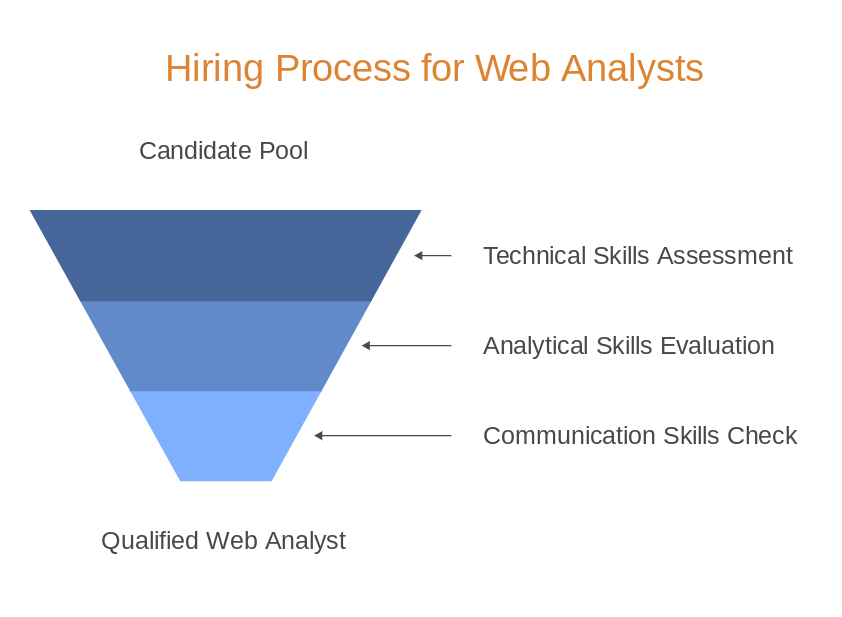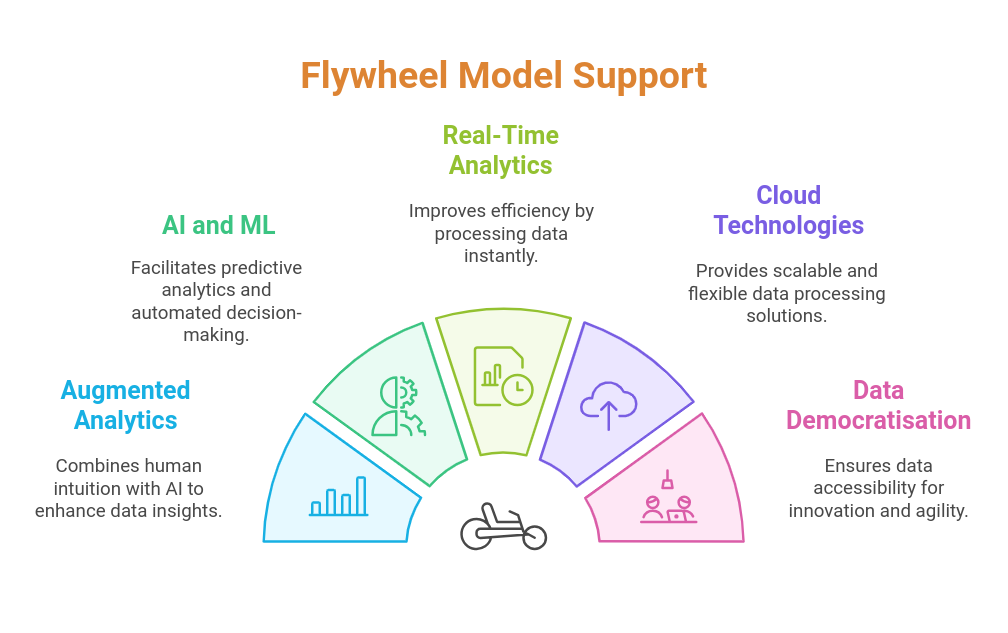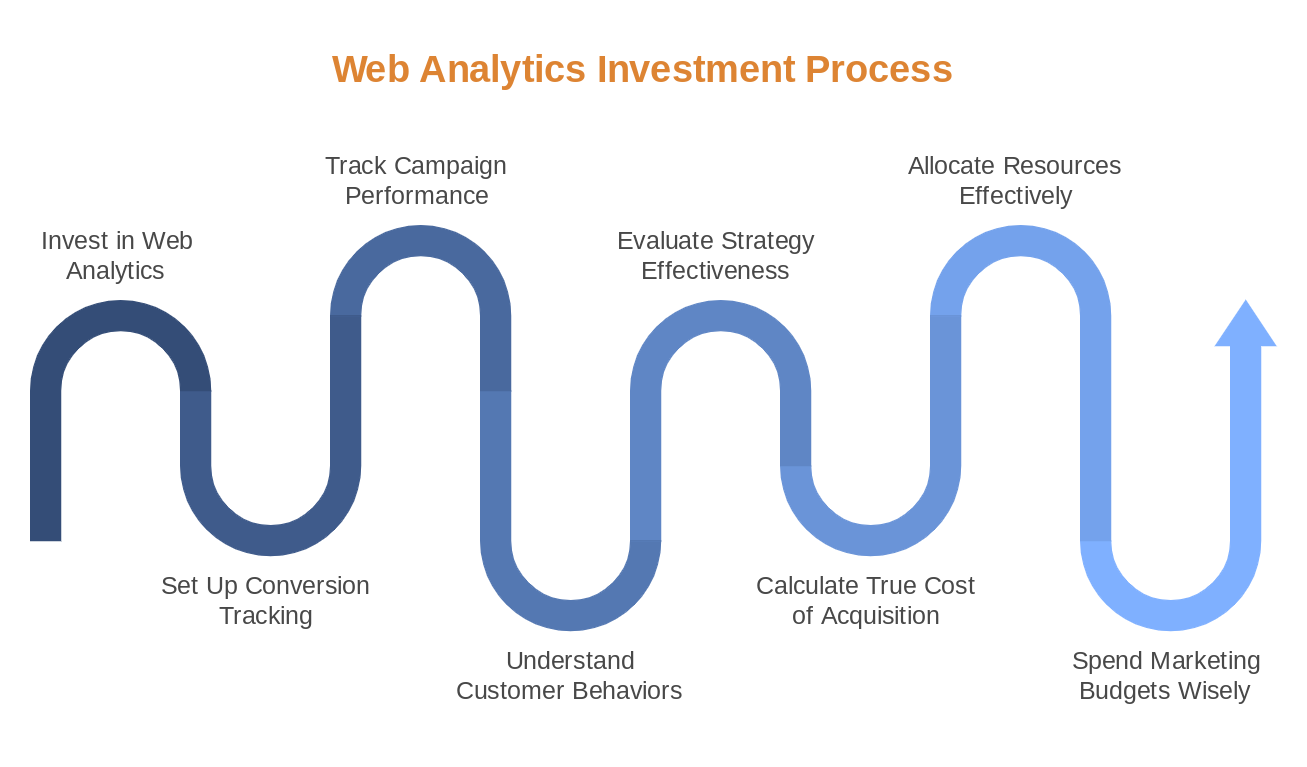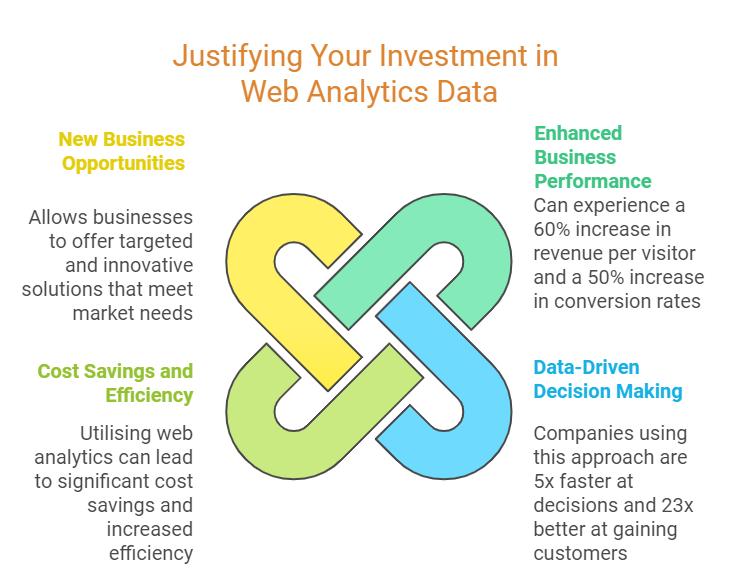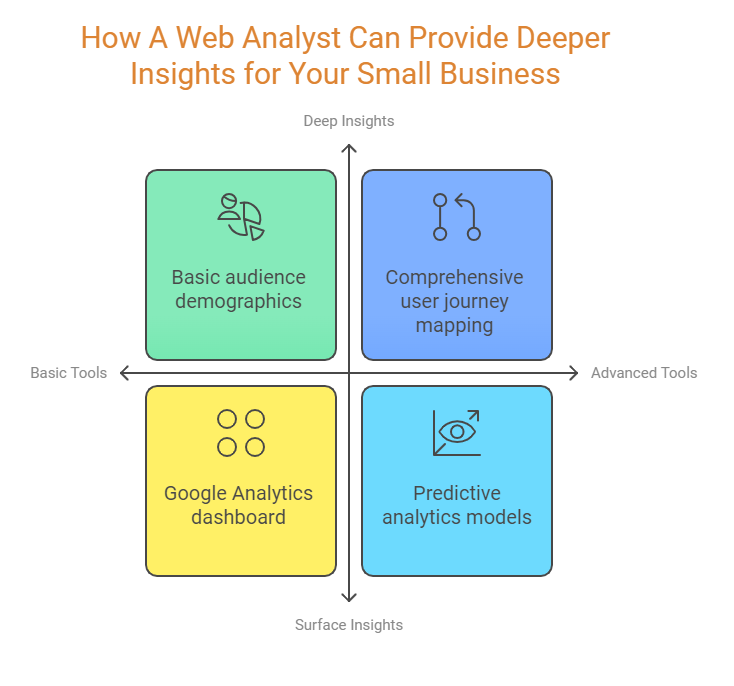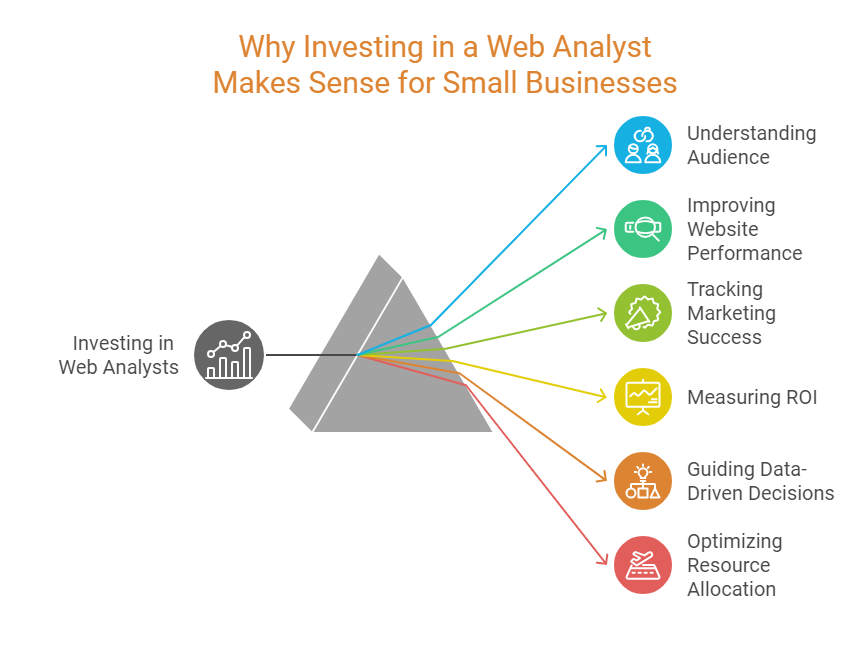In today’s data-driven world, hiring the right web analyst is critical for small businesses aiming to leverage data for growth. This post will guide you through 10 essential questions to ask potential candidates, ensuring they possess the necessary technical, analytical, and communication skills to drive your business forward.
1. Experience with Web Analytics Tools
Question: What experience do you have in working with web analytics tools like Google Analytics?
Look for: Practical experience with tools, ability to set up tracking, and analyze key metrics such as conversion rates, attribution rates, and organic traffic.
Understanding the candidate’s familiarity with tools like Google Analytics is crucial. Look for practical experience in setting up tracking and analysing key metrics. This ensures they can provide actionable insights to improve your website’s performance. For more on setting up Google Analytics, see Google’s official guide.
2. Data Cleaning and Preparation
Question: How do you approach cleaning and preparing data for analysis?
Look for: Methods like removing duplicates, handling missing values, and standardising data formats. Familiarity with tools like Python (Pandas), R, or SQL is a plus.
Data cleaning is a critical step in ensuring accurate analysis. Candidates should demonstrate knowledge of removing duplicates, handling missing values, and standardising data formats. Familiarity with tools like Python, R, or SQL is advantageous. For an introduction to data cleaning with Python, refer to DataCamp’s tutorial.
3. Marketing Metrics and KPIs
Question: What key performance indicators (KPIs) do you track for a web analytics role, and why?
Look for: Understanding of critical metrics such as customer acquisition cost (CAC), customer lifetime value (CLV), conversion rate, and return on ad spend (ROAS). Ability to align KPIs with business goals.
A proficient web analyst should align KPIs with your business goals. Look for knowledge of metrics like CAC, CLV, conversion rate, and ROAS. This helps ensure that the candidate can track and report on the metrics that matter most to your business. For a deeper dive into KPIs, check out Klipfolio’s resource.
4. Statistical Analysis
Question: Describe a time when you used statistical analysis to solve a business problem. What methods did you use?
Look for: Proficiency in statistical methods like regression analysis, hypothesis testing, or ANOVA, and the ability to apply them to real-world scenarios.
Statistical analysis is vital for deriving insights from data. Candidates should demonstrate proficiency in methods like regression analysis or hypothesis testing. An example of applying these methods can be found in the case study of Company X, which used regression analysis to improve their marketing strategy, leading to a 20% increase in ROI.
5. Data Visualisation
Question: How do you visualise data to present it to non-technical stakeholders?
Look for: Proficiency in data visualisation tools, ability to communicate complex data simply, and awareness of audience needs. Use of tools like Tableau or Power BI.
Effective data visualisation is key to communicating insights. Look for candidates who can use tools like Tableau or Power BI to create clear, impactful visuals. This ensures that even non-technical stakeholders can understand and act on the data presented. For tips on data visualisation, see Tableau’s article.
6. Competitive Analysis
Question: What techniques do you use to analyse the competitive landscape in e-commerce or web analytics?
Look for: Methods like SWOT analysis, competitor benchmarking, and using tools like SimilarWeb or SEMrush.
Understanding the competitive landscape is crucial for strategic decision-making. Candidates should be familiar with techniques like SWOT analysis and tools like SEMrush. This allows them to provide insights into your competitors’ strategies and identify opportunities for your business. For more on competitive analysis, explore SEMrush’s guide.
7. SEO and Organic Traffic
Question: How do you measure the effectiveness of SEO efforts using Google Analytics?
Look for: Understanding of SEO metrics, ability to track organic traffic, keyword performance, landing page metrics, and conversion rates from organic search.
SEO is a vital component of web analytics. Candidates should demonstrate the ability to track and report on SEO metrics using Google Analytics. This includes monitoring organic traffic, keyword performance, and conversion rates. For a comprehensive guide on SEO metrics, visit Moz’s beginner’s guide.
8. Customer Segmentation
Question: What statistical methods do you use for customer segmentation?
Look for: Techniques like cluster analysis, decision trees, or RFM (Recency, Frequency, Monetary) analysis, and understanding of their business relevance.
Effective customer segmentation can drive targeted marketing efforts. Candidates should be familiar with methods like cluster analysis or RFM analysis. This enables them to segment customers effectively and tailor marketing strategies accordingly. For insights on customer segmentation, see HubSpot’s article.
9. Project Collaboration and Communication
Question: Tell me about a time when you had to present data or insights to a non-technical audience. How did you ensure they understood your findings?
Look for: Strong communication skills, ability to simplify complex data, and experience in presenting to various stakeholders.
Communication is key in a web analyst role. Candidates should demonstrate the ability to present complex data in a simplified manner to non-technical audiences. An example is when Company Y‘s analyst presented insights that led to a strategic shift, resulting in a 15% increase in customer retention.
10. Staying Updated with Trends and Technologies
Question: How do you stay updated with the latest trends and technologies in web analytics?
Look for: Active engagement in learning new tools and methodologies, participation in industry forums, and application of new knowledge to improve work processes.
The field of web analytics is constantly evolving. Candidates should demonstrate a commitment to continuous learning through industry forums, online courses, or certifications. This ensures they can keep your business at the forefront of analytics trends. For continuous learning resources, explore Coursera’s data science courses.
Conclusion and Call to Action
By asking these targeted questions, you can effectively evaluate a candidate’s technical skills, analytical abilities, and their capacity to drive business growth through data-driven insights. Remember, the right web analyst can transform your data into actionable strategies that propel your business forward.
Call to Action: Ready to hire a web analyst? Ensure you have the right questions prepared to find the perfect fit for your small business. For more insights on hiring and managing talent, visit our Hiring Tips and Business Growth Strategies sections.
